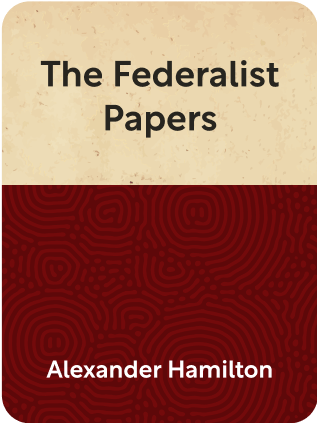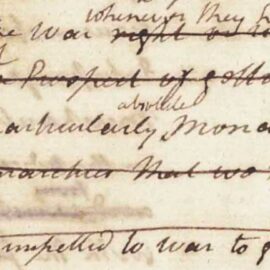

This article is an excerpt from the Shortform summary of "The Federalist Papers" by Alexander Hamilton. Shortform has the world's best summaries of books you should be reading.
Like this article? Sign up for a free trial here .
What is political factionalism? How does Federalist Paper 10 address factions?
Political factionalism is the creation of societal divisions that impact government actions. It is a concept discussed in Federalist Paper 10.
Read more about Federalist 10, factions, and the impact of political factionalism.
Against Political Factionalism in Federalist Paper 10
A large and strong Union, comprising all the states, was the best remedy against the dangers of political factionalism. According to Federalist 10, a faction is any group of citizens, whether they constitute a majority or a minority, who seek to advance their interests and passions without regard to the rights and interests of others.
Any republican form of government, of course, would give rise to factions, because political factionalism is a natural by-product of human nature. They spring from the innumerable sources of division between groups of people in a society, like language, geography, or religion. One of the main sources of division is wealth and property—between those who have them and those who don’t. The haves will always seek to preserve what they have; the have-nots will always aim to acquire what they don’t have. The only way to entirely remove factions from public life would be to remove liberty and free government entirely, something that would be antithetical to the principles upon which the nation was founded.
Political Factionalism by Government Type
Given the unavoidable nature of political factionalism in a republican system of government, it was better to look for ways to control and minimize their most harmful effects. One of the best ways to illustrate how to do this is to compare the operations of a direct democracy with those of a representative republic.
A direct democracy, in which the people themselves meet in person to make political decisions, is only practicable in small communities. Because of this smallness, however, a majority faction will likely come to dominate, trampling upon the liberties of the minority.
A republic, by contrast, can work successfully over a larger geographical area comprising a larger number of people. This is because decisions are made by representatives meeting in a designated capital, not by the people themselves in person. In a republic, popular passions are filtered through and tempered by more sober-minded representatives, making it harder for any single faction to achieve dominant status.
Moreover, representatives in a large republic have to take into account the views of a more diverse set of citizens, further making it unlikely that a single faction will come to dominate the society.
Strength in Numbers
Federalist Paper 10 extended this logic to the Union created by the proposed Constitution. A large and populous country like the United States would be safer from tyrannical factions within the Union than it would be if it were split into a number of petty confederacies.
According to Federalist 10, factions seizing control in one of the states would be outweighed by the largeness of the Union. It would make it difficult for it to extend that domination over other states, let alone all of them. The size of the political community itself limited the spread of the political contagion.
Every state and every citizen stood to gain from joining together in a strong federal government. With many states bordering on what were then foreign lands, they would be better protected if they were part of the Union. Moreover, the American people had more that united them than divided them. As majority Western European Protestants, they mostly shared a common language, ancestry, and religion. Furthermore, they shared the heritage of struggle and sacrifice during the Revolution. These were the ties that would strongly bind the young nation together.

———End of Preview———
Like what you just read? Read the rest of the world's best summary of Alexander Hamilton's "The Federalist Papers" at Shortform .
Here's what you'll find in our full The Federalist Papers summary :
- The genius of the founding fathers in how they designed the United States Constitution
- Why it was critical for the United States to form a union rather than stay separated as colonies
- How Alexander Hamilton anticipated social issues that are still relevant today






